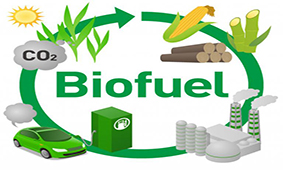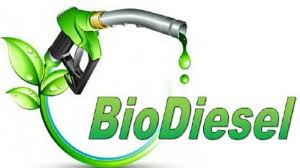
Viewpoint: Asian biofuels demand on the rise


A final determination on the European Commission's proposed definitive countervailing duty of 25-33.4pc on subsidised imports of Argentinian biodiesel to the EU is due by February 2019.
If implemented, the ASDs will shut the door on soybean methyl ester (SME) imports from Argentina less than a year after it was fully reopened.
Europe imported more than 610,000t of Argentinian SME in January-September 2018, a large proportion of which could be diverted to Malaysian and Indonesian sellers should the ASDs be implemented on Argentinian imports, although this may be tempered by local commitments to meet domestic mandates.
Exports may flourish after both countries fully transition to the higher mandates. But Malaysian sellers risk losing further market share in Europe to Indonesian competitors. Europe is the world's largest biodiesel market and is the usual destination for Asian exports.
Indonesian exporters benefit from larger economies of scale and a favourable generalised scheme of preference status, which means they do not have to pay the EU's usual 6.5pc import tariff on biodiesel, giving them a competitive advantage over their Malaysian counterparts.
Indonesian producers also no longer have to pay EU anti-dumping duties (ADDs), which lapsed in October this year, reopening the trade route between the two regions.
The EU in 2013 imposed ADDs of 8.8-23.3pc on Indonesia, effectively closing the arbitrage window for Indonesian exports to the region, but in March this year it exempted four Indonesian producers from the ADDs.
Biodiesel exports from Indonesia to the EU since the end of March hit 666,913t to the end of October, compared with 283,673t from Malaysia over the same period and around 17 times higher than Indonesia's biodiesel sales in the whole of 2017.
But the honeymoon may be short-lived for Indonesian producers as EU lawmakers have started investigating this month whether to impose ASDs against the country, given the incentives producers receive from a $50/t export levy that Jakarta charges on feedstock crude palm oil (CPO), which helps subsidise the industry.
But Indonesia's finance ministry has recently suspended export duties on palm oil and its derivatives because of chronic low palm oil prices, with the duties to be re-imposed only when CPO values reach $570-619/t. This may lead EU lawmakers to consider not imposing ASDs against the country, but if significant impact is found then preliminary ASDs can be imposed in nine months, with a final determination due by 13 months.
At the same time Indonesian manufacturers could find their production margins squeezed, as the proceeds from this tariff were previously used to incentivise biodiesel production in the country.
This could in turn lead to higher PME prices.
Higher obligations
Indonesia expanded its 20pc biodiesel (B20) in transport mandate to include non-public sector vehicles in September, to reduce expensive crude imports and support domestic palm oil producers. Palm oil prices fell to more than three-year lows in the fourth quarter because of weak demand and high production and inventory levels.
The B20 expansion is estimated to boost domestic biodiesel consumption to 5.5mn t/yr from 3mn t/yr now. Consumption may further increase to 9mn t/yr with the potential early rollout of 30pc biodiesel blends (B30) in road transport next year.
Indonesia's biodiesel association Aprobi is pushing for an early rollout of B30 as initial wrinkles in the implementation of B20 have largely been ironed out. But the government and car manufacturers are not as enthusiastic as they feel more tests need to be carried out to ensure that engines can run safely on the higher blend.
A trial has been scheduled for January to test the B30 fuel, which also meets the EU's Euro 4 vehicle emissions specifications. The result of the trial will determine how quickly the higher blend mandate can be implemented.
The world's second-largest palm oil producer Malaysia started phasing in a higher 10pc biodiesel blend (B10) in transport from 1 December this year. Implementation will be made mandatory from 1 February 2019. A compulsory B7 mandate will also be introduced for the industrial sector from 1 July 2019. These new measures are estimated to add around 300,000 t/yr of domestic demand on top of around 350,000-375,000 t/yr currently.
As Indonesian and Malaysian producers adjust to the higher mandates, export volumes may be limited — at least in the short term — although both countries have excess capacity, with Indonesia's total potential production at 12mn t/yr and Malaysia's at 2mn-2.5mn t/yr.
But while Indonesian sellers are for now free to export unimpeded into the EU, this has so far not resulted in more cargoes making the journey, mainly because of the country's higher domestic biodiesel mandate, weak demand during the off-peak winter season and abundant supply in the EU. But the latter two factors are set to change in the first half of 2019 heading into summer.
Supply-demand issues
Lower palm oil prices and recovering crude values widened the palm oil-gasoil (POGO) spread to a four-year record of $218/t in October, boosting demand for PME in 2018, especially from China, which does not have a biodiesel mandate of its own and so purchases material only when it is cost-effective.
An estimated 436,000t of PME was shipped between the Straits and China in June-November, when the POGO spread encouraged biodiesel purchases. But whether this continues into 2019 will depend on the prices of palm oil and crude.
Increased biodiesel demand from Europe as well as from producers in Indonesia and Malaysia to meet higher domestic mandates should help to drain palm oil inventories and support palm oil values, although much will depend on the outcome of the US-China trade dispute, which has dragged down rival soybean and vegetable oil prices.
If crude and gasoil values remain high, China will likely continue to not only purchase more PME but also keep most of its domestically produced used cooking oil (UCO) and used cooking oil methyl ester (Ucome) biodiesel, instead of exporting to Europe. But Chinese exports into Europe are expected to grow as more UCO collectors become certified to sell into Europe and smaller exporters consolidate to boost storage space and overcome logistical bottlenecks as well as increase bulk shipments in a fledgling market.
There are, however, some supply issues as the Chinese government has recently issued a decree limiting UCO collection from hog farms in light of a recent swine flu outbreak in the country.
Biofuels blending mandates are meanwhile rising in Europe, with Spain preparing to introduce double counting of waste-derived biofuels towards the mandates, likely in the first half of 2019, which is incentivising the use of UCO and other scarce waste feedstocks.
Chinese UCO exports to Europe in the first nine months of 2018 increased eight-fold from the same period a year earlier to 270,000t. Ucome sales during January-September hit 217,000t compared with less than 200,000t during the whole of 2017.
Changing focus
Looking ahead, the appetite for second-generation biofuels is set to rise in the long term at the expense of vegetable oil derived biodiesel, particularly PME, with the new Renewable Energy Directive II, which aims to reduce food-based biofuels demand.
The directive is set to be implemented post-2020 and looks to act on mounting pressure to phase out palm oil by 2030 and focus instead on high greenhouse gas saving product.


Trump weighs using $2 billion in CHIPS Act funding for critical minerals

Codelco cuts 2025 copper forecast after El Teniente mine collapse

Electra converts debt, launches $30M raise to jumpstart stalled cobalt refinery

Barrick’s Reko Diq in line for $410M ADB backing

Abcourt readies Sleeping Giant mill to pour first gold since 2014

Nevada army depot to serve as base for first US strategic minerals stockpile

SQM boosts lithium supply plans as prices flick higher

Viridis unveils 200Mt initial reserve for Brazil rare earth project

Tailings could meet much of US critical mineral demand – study

Kyrgyzstan kicks off underground gold mining at Kumtor

Kyrgyzstan kicks off underground gold mining at Kumtor

KoBold Metals granted lithium exploration rights in Congo

Freeport Indonesia to wrap up Gresik plant repairs by early September

Energy Fuels soars on Vulcan Elements partnership

Northern Dynasty sticks to proposal in battle to lift Pebble mine veto

Giustra-backed mining firm teams up with informal miners in Colombia

Critical Metals signs agreement to supply rare earth to US government-funded facility

China extends rare earth controls to imported material

Galan Lithium proceeds with $13M financing for Argentina project

Kyrgyzstan kicks off underground gold mining at Kumtor

Freeport Indonesia to wrap up Gresik plant repairs by early September

Energy Fuels soars on Vulcan Elements partnership

Northern Dynasty sticks to proposal in battle to lift Pebble mine veto

Giustra-backed mining firm teams up with informal miners in Colombia

Critical Metals signs agreement to supply rare earth to US government-funded facility

China extends rare earth controls to imported material

Galan Lithium proceeds with $13M financing for Argentina project

Silver price touches $39 as market weighs rate cut outlook

















